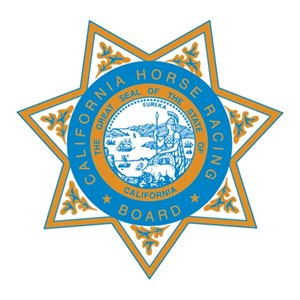Amador, Couton Suspended 30 Days For Whip Hand-Off


Northern California stewards have suspended jockeys Silvio Amador and Julien Couton for 30 calendar days because of an exchange of the riding crop between the two that occurred during the sixth race at Golden Gate Fields Dec. 12.
Video of the race made its rounds on social media. It shows Couton on Olive You More dropping his crop leaving the final turn of the race while advancing from the rear of the pack. He then pulls alongside Amador, aboard a fading Belle Magie, and the two appear to communicate before Amador gives Couton his crop. Couton then uses it to strike his mount several times in the run to the finish.
Olive You More, off at 7-2 odds, closed to finish third, and 13-1 Belle Magie weakened to finish last in the field of nine, a race for maiden 2-year-old fillies won by Mila's Dream, a runner unaffected by the incident.
Video: Race 6 (MSW) at GG on 12/12/19
The replay shows the race declared official by track stewards 4 1/2 minutes after completion without the posting of an inquiry.
Occasionally, track stewards will declare a horse a non-starter, refunding wagers on the given horse, and rarer still, a no-contest, refunding bets on all participants. The declaration of a non-starter most often occurs when a horse is still being held in the starting gate by an assistant starter, and no-contests tend to follow multiple-horse compromising circumstances, such as a loose horse racing toward oncoming horses or when a starting gate malfunction causes horses to break unfairly.
In a ruling distributed Dec. 14 from the California Horse Racing Board, stewards suspended Amador "for failure to give his best effort by voluntarily relinquishing his riding crop to a rival jockey in the stretch" and Couton for "soliciting and gaining control of a rival jockey's crop in the stretch." Barring appeal, the suspensions cover races from Dec. 16-Jan. 14.
The suspensions are much longer than those for customary riding infractions. Jockeys in California are regularly suspended for five racing days for causing interference.
The suspensions come at a time during heightened sensitivity regarding the use of the riding crop, particularly in California. During its regular meeting Dec. 12 at Los Alamitos Race Course, the CHRB advanced new riding crop rules its chairman called the most restrictive in the U.S.
The approved rule, which is now available for 45 days of public comment, will limit the number of times a jockey can strike a horse during a race to six. Riders will be allowed just two strikes in succession, not bringing the crop above their shoulder, requiring a pause to allow reaction from the horse.
